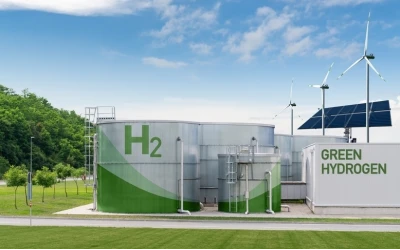Redirecting 10% of Fossil Fuel Subsidies Could Change the World
Oil & Gas, Renewable Energy
Transferring just a small percentage of subsidies supporting fossil fuels to renewable energies could kickstart a clean energy revolution, according to a report published recently. Redirecting as little as 10% of the billions spent on fossil fuels towards renewables would help keep global temperatures from rising more than 2° above pre-industrial levels, as agreed in the Paris Agreement.
The Subsidy Swap
The International Institute for Sustainable Development (IISD) reported that globally, the coal, oil and gas sectors receive more than $370bn (£305bn) a year in support from governments – more than 3.5 times the $100bn received by renewables. The report authors highlight that a “subsidy swap”, redirecting the subsidies from fossil fuels to renewables, would “not only make the clean energy revolution possible but also save taxpayers’ money for other priorities.”
Redirecting subsidies would allow for rapid expansion in capacity, construction of infrastructure and energy storage programmes. Countries such as India, Indonesia, Zambia and Morocco have seen a huge shift in energy subsidies and are reaping the rewards, helping to reach closer to net zero targets, boost jobs and reduce reliance on foreign energy sources.
Currently 112 countries subsidise fossil fuels. The IISD study of 20 countries found that a 30% swap to renewables would lead to emssions reductions of 11-18%, but even a 10% swap would cause an incredible impact on global heating and help to stay within targets of the Paris Agreement.
UK Energy Subsidies
The UK government subsidises fossil fuels by £10.5bn (€12bn) a year, more than any other EU country, according to a report from the European commission. A significant part of the UK subsidies take the form of a 5% rate of VAT on domestic gas and electricity, 15% less than the standard 20% VAT rate. The UK also provides tax breaks to oil and gas companies in the North Sea, which received £396m in 2016.
By the UK government’s definition of subsidies, this reduced tax rate doesn’t constitute a subsidy, however it does by World Trade Organisation rules – which the UK has agreed to. Rebates on the cost of decommissioning oil rigs, pipelines and infrastructure also contribute the subsidy total. A written question to parliament answered by Claire Perry earlier this year, reiterates that the UK has no fossil fuel subsidies and doesn’t disclose the difference in VAT payments or decommissioning costs.
As the energy industries shift away from fossil fuels and towards a greener future, there are new opportunities within the evolving work force. Whether you’re an experienced engineer, changing careers or just starting out, our recruitment consultants can help you find the perfect role. View our current vacancies online or contact us on 01502 564892, email cvs@peoplewithenergy.co.uk




